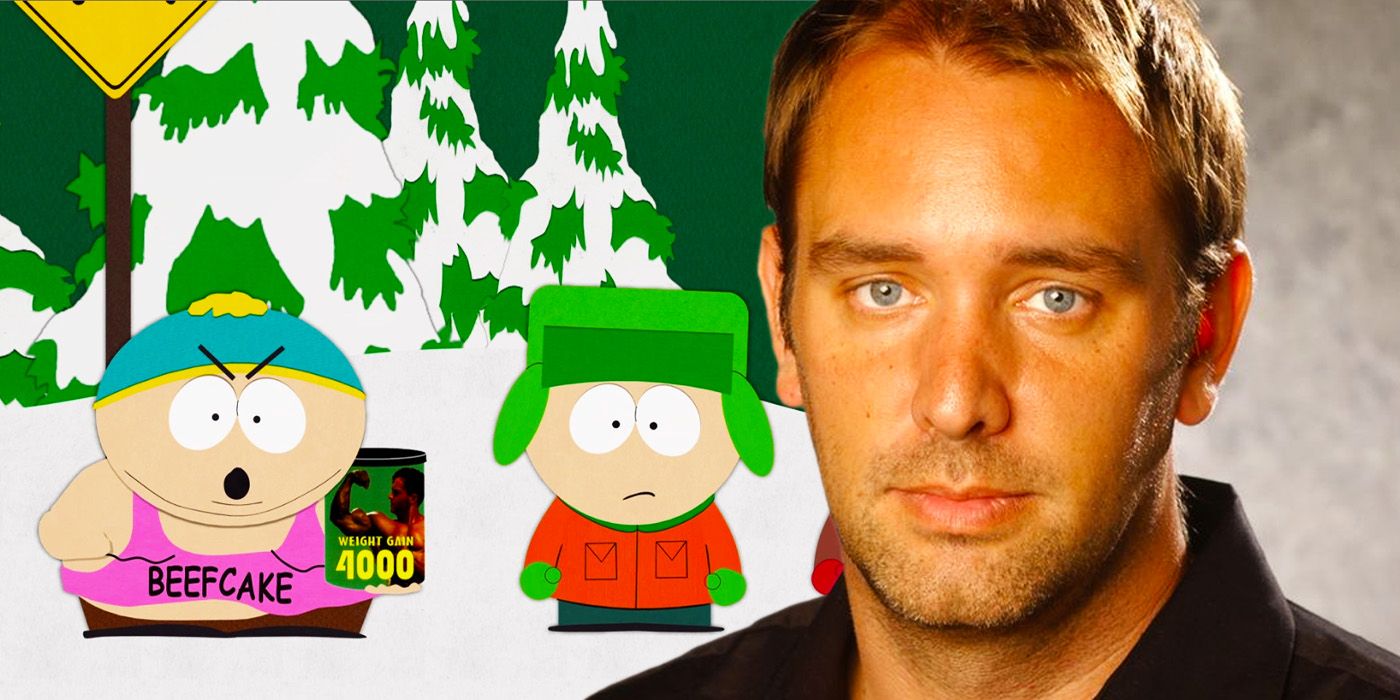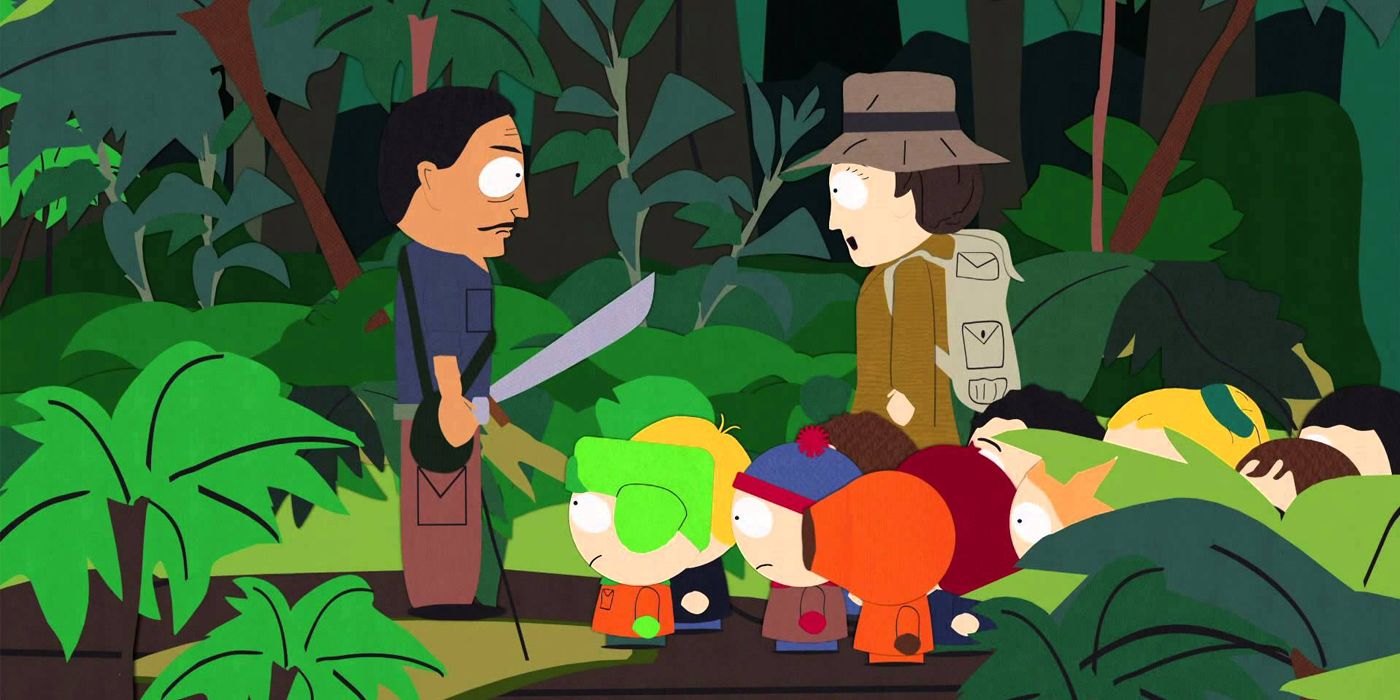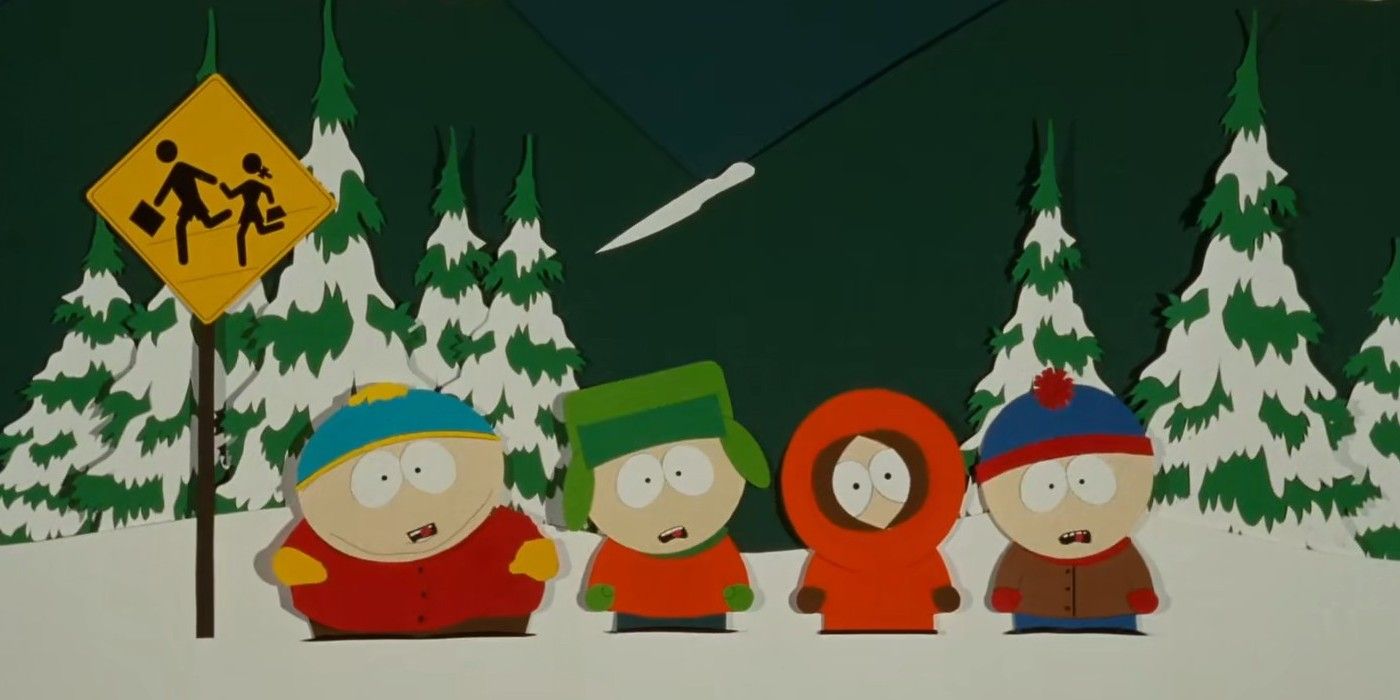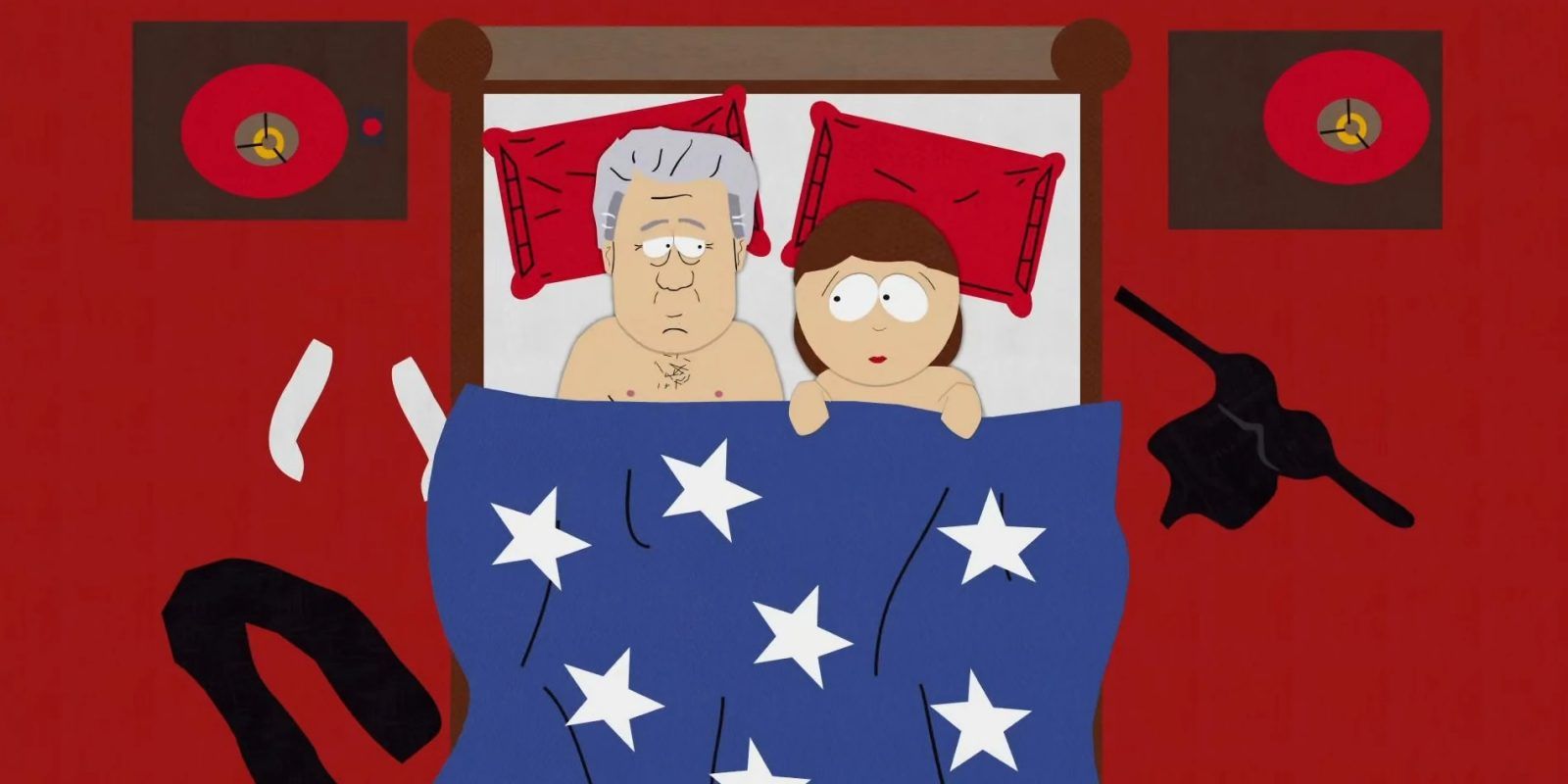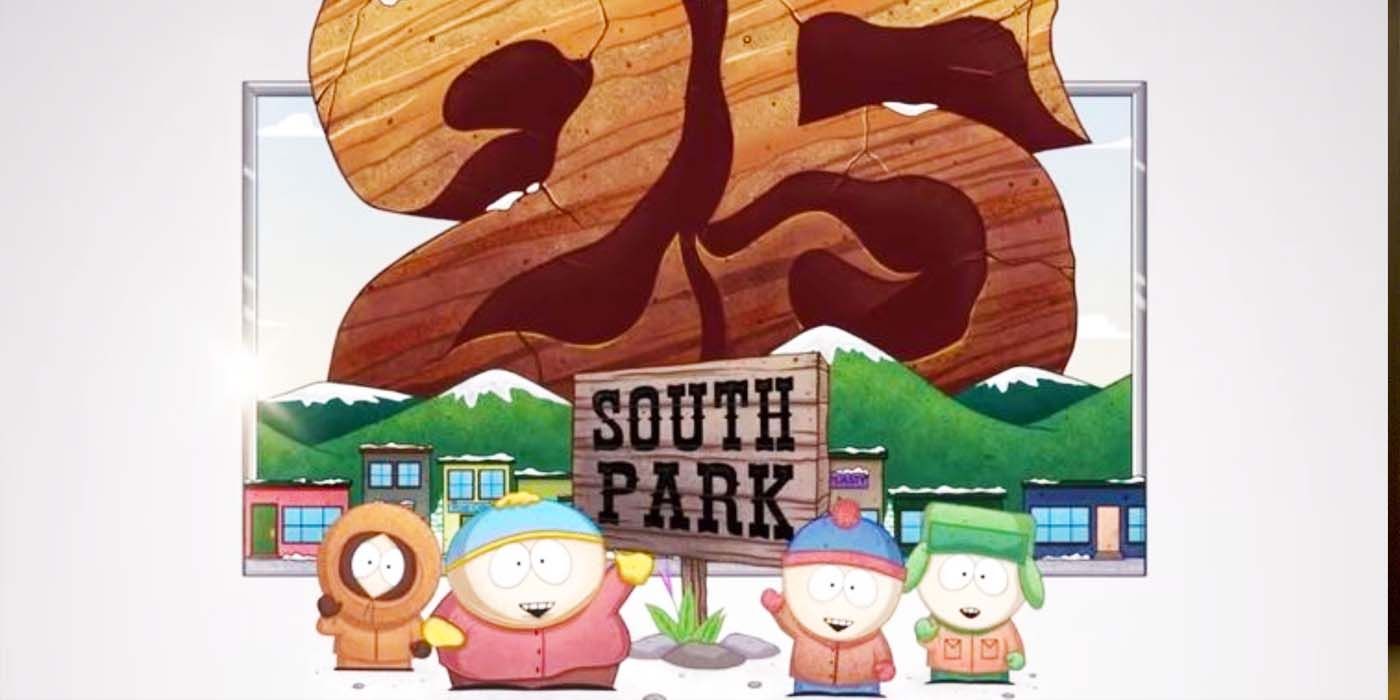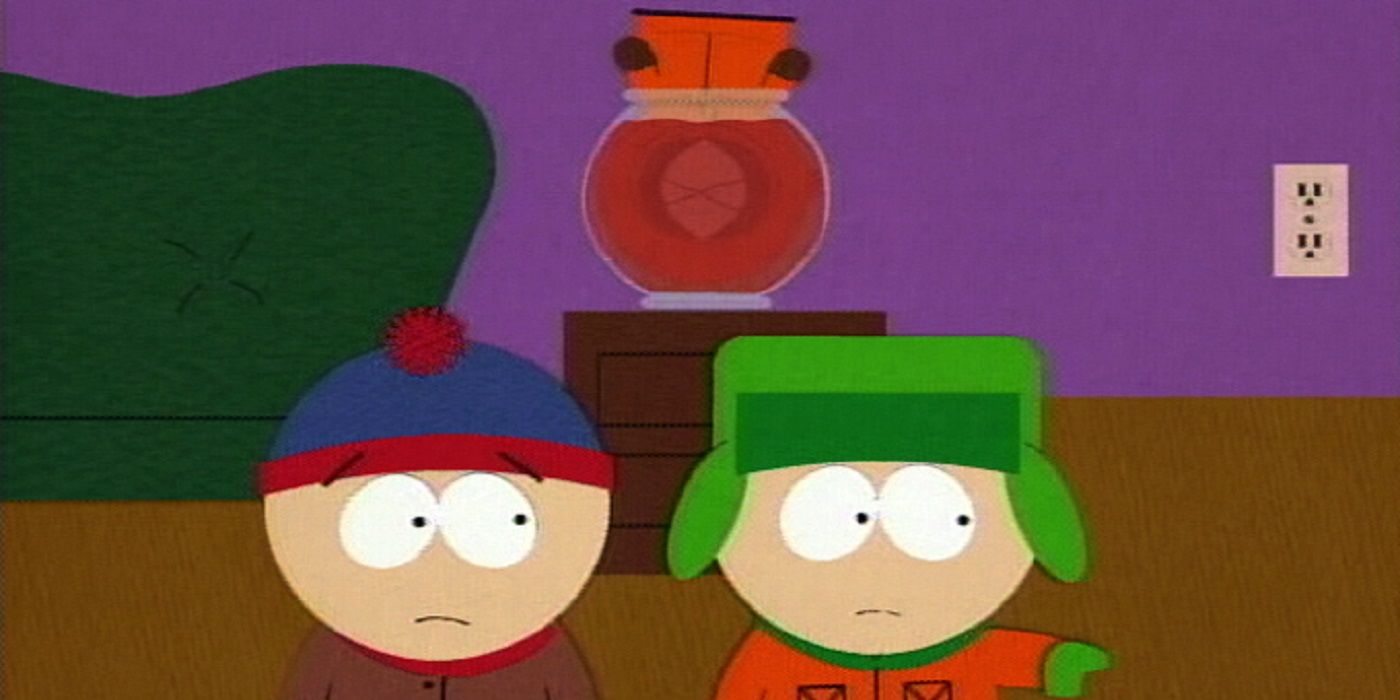While South Park co-creator Trey Parker stated that he wished he was able to scrub the first three seasons of the anarchic animated comedy from existence, the show’s early years weren't as bad as his regret suggests. South Park has changed a lot over the two and a half decades that the R-rated animated satire has been on the air. Beginning life as a ribald, tasteless cartoon comedy, South Park gradually grew into a more thoughtful vehicle for social ad political satire.
Ever since co-creators Trey Parker and Matt Stone’s historic $900 million deal with Paramount Plus in 2021, South Park has entered into its latest era. South Park’s feature-length specials like the two-part Streaming Wars or the Post-COVID saga allow the series to tell more ambitious stories than ever before, with the expanded runtime giving Stone and Parker free rein to take on a variety of subjects in one longer outing. Not only that, but the months-long production process of South Park’s feature-length specials also allow the show’s creators to spend more than a week working on each special’s plot, a major change from South Park’s typical five-day turnaround.
While this absurdly swift schedule allowed South Park, unlike most satirical shows, to comment on hot-button issues as they unfolded, the cartoon didn’t initially operate this way. Until South Park season 4, the show was a goofier, less politically conscious comedy that focused mostly on random humor and gross-out jokes. Much like Rick & Morty’s later seasons embraced serialized storytelling and character development, South Park started to focus on political and social issues from season 4 onwards. The scatological edge of the show’s humor remained, but South Park’s jokes were now aimed at politicians and real-life events rather than tastelessness for its own sake. Due to this tonal shift, it is not a shock that Trey Parker admitted that he wished he could erase the first three seasons of South Park from existence, because of how ramshackle its writing was in its early years. However, South Park could learn something from the seasons that Parker hates.
Why Trey Parker Hates South Park’s Early Seasons
According to an interview with Entertainment Weekly, Parker would delete “basically anything from before season 4,” from South Park’s history if he could. With some of South Park’s most-hated episodes like South Park's "Jakovasuars” (season 3, episode 4) falling within this time frame, the writer/director’s reasoning is easy to understand and empathize with. Simply put, Parker felt that South Park’s early jokes haven't aged all that well and didn’t have much story structure to back up their weak punchlines. Per the interview, Parker said, “It’s just embarrassing to watch. OK, we were, like, 26, 27. But it’s like, ‘Really?’ We thought that was funny? We thought that was well-written? Oh my God, this is terrible.
Are South Park’s Early Seasons Any Good?
While it is easy to see Parker’s point, his dismissal of South Park’s early seasons fails to appreciate just how much potential is present in the show’s first three seasons (crude as it might be). It’s hard to deny that there are cringe-worthy moments, that some of the shock humor has aged badly, and the storytelling is laughably simplistic. However, some of South Park’s contemporary jokes land terribly and these misjudged gags don’t have the excuse of age and shifting social/cultural norms to fall back on. Not only that, but Parker’s assessment fails to highlight how many classic episodes of South Park appear in seasons 1-3. Outings like “Rainforest Shmainforest,” (season 3, episode 1) “Korn's Groovy Pirate Ghost Mystery,” (season 3, episode 10) “Spookyfish,” (season 2, episode 15) “Mr Hanky The Christmas Poo,” (season 1, episode 9) and “Chef’s Chocolate Salty Balls” (season 2, episode 9) are all included in the window that Parker says he would prefer to remove from the public consciousness, and while the animation and plotting of these outings might be imperfect, they are still some of South Park’s most beloved episodes.
What Made South Park Season 4 So Much Better?
While Parker’s condemnation of South Park's early seasons is unnecessarily harsh on seasons 1-3 (and arguably too kind to the show’s recent, uneven outings, such as seasons 20 and 23), the co-creator’s choice to single out South Park season 4 as a turning point for the series is fair. Not only did South Park start to comment on contemporary politics in far more focused way than the chaos of the edgier early seasons around this time, South Park season 4's writing is also tighter and the plots make more sense, with nowhere near as much random humor. Some of the season’s most beloved outings like South Park's ingenious Children of the Corn parody "The Wacky Molestation Adventure" (season 4, episode 16) appear in this season and represent South Park at its best. Combining clever social satire with gross-out silliness, season 4 found a unique tone that South Park’s imitators could never quote recapture. There is a focus to season 4’s silliness and even the show’s occasional missteps like "Pip" (season 4, episode 14) proved that South Park was moving away from goofy, random humor and toward more ambitious weirdness.
Why South Park Is So Different Now
South Park’s focus on up-to-the-minute political commentary has resulted in the show's formula feeling far more rigid in recent seasons, with South Park’s desire to comment on real-life events meaning there are fewer opportunities for random, goofy misadventures than season 4 allowed. Randy Marsh’s increasingly central role in later South Park seasons is indicative of this shift, with the adult character drawing attention away from the show’s young heroes to allow the creators comment on contemporary social and cultural issues through an adult avatar. This approach deprives South Park of its original conceit, namely that the show satirized the absurdities of contemporary life by presenting them through the perspective of (relatively) innocent kids, an inherently silly idea that allowed for more far-fetched plots than simply following an adult character through his daily life.
South Park Could Learn From Seasons 1-3
South Park's need to have a hot take on every issue can be draining for the show’s humor, which has led to some terrible takes over the years. South Park’s worst jokes tend to be rooted in a perceived need to comment on every controversial topic, while some of the show’s funniest episodes ever, such as "Marjorine" (season 9, episode 9), have no connection to current events whatsoever. In this regard, South Park’s early seasons and their decision to largely ignore real-life events might be more inspired than the creators give it credit for, and South Park season 26 could use some of the series' early unpretentious charms.

